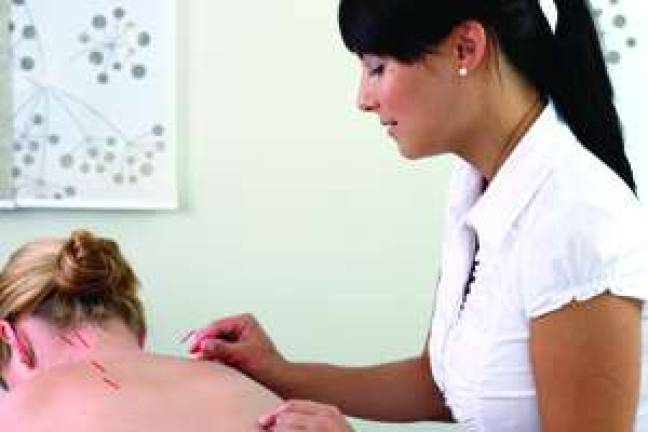How to Become an Acupuncturist

By Laura Shin Aimee Raupp always knew she wanted a career where she could help people. On a daily basis, she does exactly that, treating patients who seek help for everything from anxiety and depression to infertility. Raupp is a licensed acupuncturist and herbalist. "I love giving people the sense of hope that they can feel better," Raupp said. Acupuncture is an ancient Chinese medical treatment that involves inserting needles into specific points on the body. By adjusting the flow of the body's energy, acupuncture is used to heal various illnesses and conditions. The World Health Organization has identified 28 different conditions for which acupuncture is an effective treatment, including allergies, adverse reactions to chemotherapy, headaches, depression, nausea, neck pain and lower back pain. As acupuncture continues to become more popular in the U.S. and a more widely accepted form of treatment, job opportunities in the field may be growing, too. Raupp runs two successful practices in New York; one in Manhattan and one in Nyack. But becoming an acupuncturist takes commitment, Raupp said. Anyone interested in obtaining an acupuncture license must first earn a master's degree. Most programs take about three to four years to complete. Some schools that offer acupuncture programs in Manhattan include the Tri-State College of Acupuncture, New York College of Health Professions, the Swedish Institute and the Pacific College of Oriental Medicine. "I think it's definitely more intense than what people think," said Raupp, who holds a Master of Science degree in Traditional Chinese Medicine from the Pacific College of Oriental Medicine in San Diego. The curriculum covers such areas as the history of Chinese medicine, ethics, the study of herbs, needle technique, pressure points, anatomy, physiology and pharmacology. Prior to enrolling in the program, Raupp was pursuing a graduate degree in neuroscience and she held a bachelor's degree in biology. Her background in science helped her in the program, she said. "You truly have to be committed, because you are learning the whole concept of Chinese medicine and in addition, you're learning Western medicine, because you need to understand the conditions you are working with," said Barbara Carver, senior vice president of New York College of Health Professions, which offers degrees in acupuncture and oriental medicine. Extensive clinical work is also a significant part of acupuncture programs. "Students have a lot of practical experience by the time they graduate," Carver said. At the New York College program, students complete 1,000 hours of supervised acupuncture training at the school's teaching clinic. "Students talk with the patients and have a very intimate information exchange," Carver said. "They learn how to diagnose and how to choose what points to use." Admissions requirements vary by program, but most schools require approximately two years of college-level education. New York College of Health Professions, which has three locations in Manhattan, requires 60 college credits, but does not require applicants to have a degree. "We look at how well they did in science," Carver said. "If they didn't do well, they're probably going to struggle with some of the courses. We also look to see if the students have an interest in helping people." Carver said she believes the field is growing. She said the program at New York College of Health Professions has seen an increase in enrollment in recent years. After completing a master's program, students must complete examinations through the National Certification Commission for Acupuncture and Oriental Medicine. In New York, acupuncturists are also required to take the Clean Needle Technique course. Once a person has fulfilled all education and exam requirements, they can apply for licensure through the New York State Education Department. Many acupuncturists decide to open their own practice, but some go on get a job within an existing practice. Hospitals and spas are also hiring acupuncturists now, Carver said. Acupuncturists also often work in practices alongside chiropractors and massage therapists. Raupp said she always knew she wanted to open her own practice. She said she rented space, and her dad bought furniture for the office. She started off slowly, but she says through hard work and word of mouth, business picked up. "I always had the entrepreneur thing in me," she said. "If you know how to build a business, you can have a successful practice."